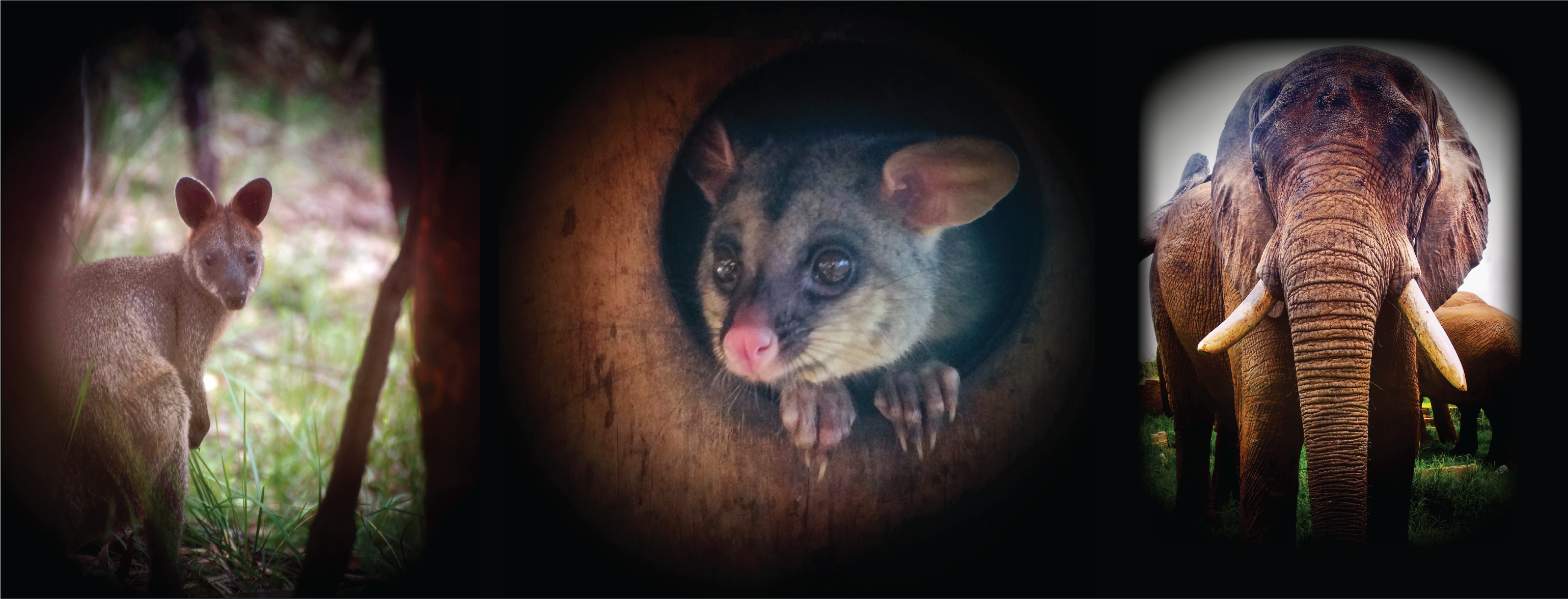Welcome to the Behavioural Ecology Lab led by Professor Clare McArthur in the School of Life and Environmental Sciences, at the University of Sydney. Our research answers fundamental questions about how animals forage; a central ecological theme because food fuels animal fitness. We link plant-herbivore and predator-prey interactions to understand the behavioural responses of foraging herbivores to dual constraints imposed by trying to consume good food while avoiding being eaten. We explore foraging at all stages of the process: from whether, how and why animals visit food patches, to how long they stay, and why they quit. We investigate not only the ultimate drivers of foraging relating to risks and rewards, but also the proximate drivers such as the rules of thumb (heuristics) they use in making foraging decisions, to how and how well they solve problems while they forage.
Our research is currently focused on two main themes:
- Understanding how animals use odour cues to forage efficiently
- Exploring the ecological consequences of animal personality, particularly in relation to foraging
Our fundamental discoveries can be used to improve the conservation and management of species. For example, we can help protect valued plants from browsing by exploiting how herbivores use odour to find and choose food. And we can better model the risk of spreading gut parasites to urban wildlife (reverse zoonoses) by understanding how personality affects how individuals use their environment.
The lab is very diverse with great students who, over the years, have come from around the world: Australia, USA, Sri Lanka, Argentina, Italy, Venezuela, and France. We study a range of species suited to our questions. Most of our work in Australia is with wild marsupial herbivores (possums, wallabies, koalas and wombats); and with international collaborators, ecological equivalents (elephants and deer).
If you are interested in joining us, get in touch with me to discuss current research opportunities.

